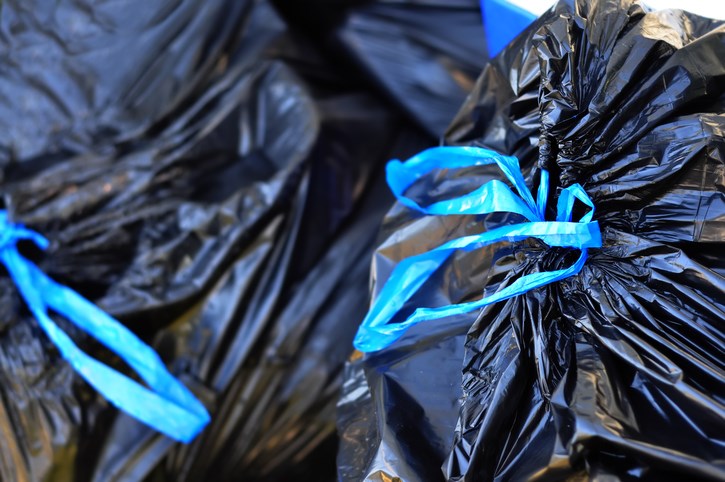A consensus has been reached and a waste collection service level change with potentially wide-reaching implications has been moved ahead to the final stages of the City of North Bay's 2021 operating budget process.
In these deliberations, time — or rather the timing — of the waste diversion initiative seemed to be of the essence when it came to a measure Council seemed destined to approve anyway.
It was agreed, after much discussion, Council will re-examine and ultimately decide in the spring whether a program that calls for a reduction in the maximum number of "free" garbage receptacles permitted to be put out for collection — from the current three down to two — will be put in place for July 1, 2021. The industrial, commercial, and institutional sectors will see their limit drop from 12 to 10 receptacles under the proposed model.
The program also calls for an increase in the price for citizens to dispose of garbage above and beyond the new two-receptacle limit to $2 per bag, as opposed to the current $1.
See original story: Would you pay a buck a bag for extra garbage pickup?
It should be noted, according to the City of North Bay's current definition, one standard receptacle can include several bags of garbage:
"Bag tags to go on extra bags/receptacles are available for purchase for times, such as during spring cleaning or when moving, when residents have more garbage than normal, exceeding the three-bag limit. Extra bags/receptacles can have a maximum weight of 15 kilograms, or 35 pounds and receptacles cannot be larger than 150 litres, or 33 gallons. The City will collect three extra garbage bags/receptacles per household as long as they have a bag tag."
If the service level change is ultimately approved, that "free three-bag limit," will drop to two and City garbage bag tags available for purchase at the Customer Service Centre on the main floor of City Hall will double in cost to $2 per tag.
The program was a smaller part of a larger, ongoing discussion about the future of the City's landfill and the eventual need to expand. These programs are designed to divert waste from the landfill into recycling programs, with the aim of maintaining or extending the useful life of the Merrick landfill. By 2025, the cost of recycling will be borne by the producers of the materials, not municipalities the size of North Bay, creating further savings.
See related story: Banning collection of textiles another way to extend life of landfill
Karin Pratte, the City's senior environment and facilities engineer, reported consultants' fees for finding a new landfill area will cost $500,000 to start the process and could end up costing millions. She added it could take 10 to 15 years and cost tens of millions of dollars to design and prepare a new location for service. She says the current landfill is estimated to have a life of 17 years.
"This is not only environmentally-friendly, it's fiscally-friendly," said Pratte, later adding, "The intention here isn't that we would sell thousands and thousands worth of bag tags. The intention is to have people think differently about what they put into the waste stream."
Coun. Mac Bain has long been a vocal proponent of a true "buck-a-bag" waste diversion model. He says allowing the public to purchase extra bags does not encourage people to recycle.
"There are ways of doing garbage and recycling better, and I want to encourage us to explore doing it more," offered Bain. He later added, "30 per cent of the households in North Bay do not recycle. They just don't put a blue box out every two weeks."
Pratte advised the user-pay system has been advertised as part of an education campaign over the last year since the $1 tag was introduced and 1,500 have been sold so far this year. She says the average residential user is putting out 1.5 receptacles/bags per week.
"This would not have a huge impact on your average user," says Pratte. "It would encourage users to recycle more."
Pratte noted, it is estimated through the examination of waste at the landfill, 30 to 40 per cent of the waste entering the landfill is from recyclable material. This program is intended for households putting out three receptacles and no recycling.
"I would be happy if no tags were sold at all and we increased recycling," she told Council.
Coun. George Maroosis wondered about expanding the venues at which citizens could buy tags and Pratte advised discussions have taken place to expand sales to locations where transit passes are available, such as convenience stores.
Pratte shared the City of North Bay "currently allows the most waste at the curb of any other large northern Ontario community." More than Thunder Bay, Sault Ste. Marie, Sudbury and Timmins. "We have the largest volume allowed at the curb — for free. Going down to two free bags we would be comparable."
Coun. Mark King expressed concern about an increase in illegal dumping, referring to the problem of dumped mattresses in the community since fees were raised.
And, Coun. Scott Robertson asked Pratte if they were discussing "good public policy," and Pratte agreed they were.
"This is an initiative that can make the greatest impact in terms of waste diversion in the City of North Bay."
